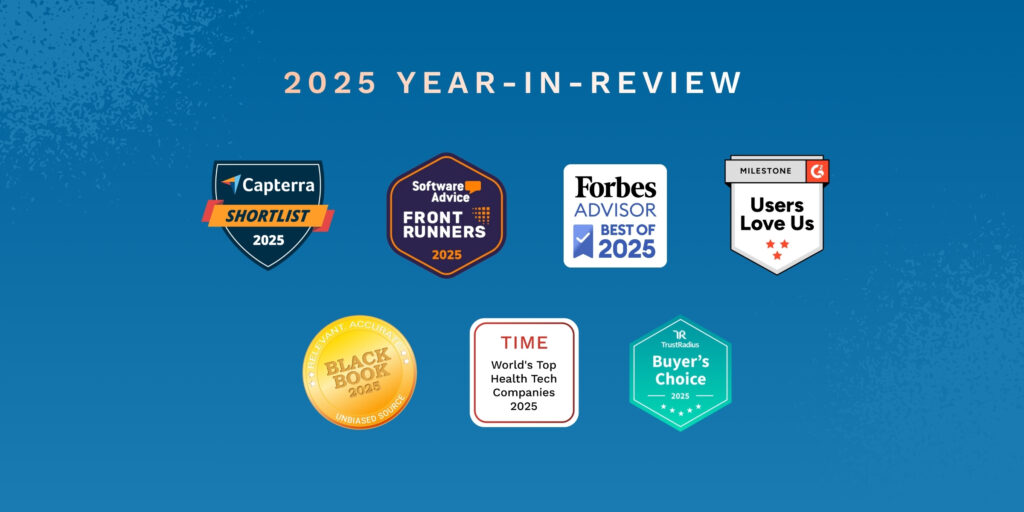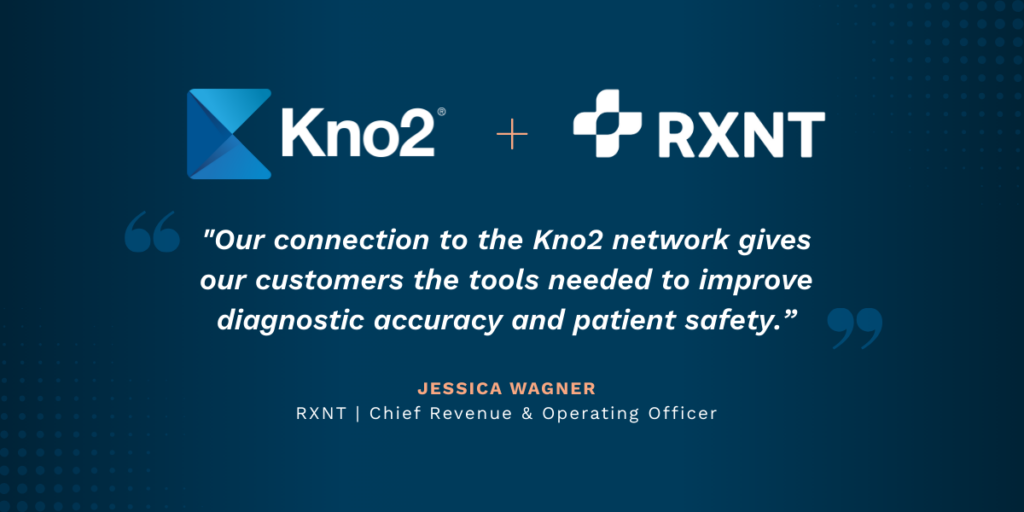AI in healthcare is often misunderstood, with hype and fear sometimes overshadowing its real impact on patient care and provider workflows.
Artificial intelligence (AI) is on the path to transforming healthcare. New tools offer the potential to detect cancer in patients months earlier than usual, complex billing issues can be resolved with intelligent algorithms, and once-grueling administrative tasks can be handled seamlessly in the background.
Yet, despite its rapid adoption, AI in healthcare is often misunderstood, with hype and fear sometimes overshadowing its real impact on patient care and provider workflows. From enhancing diagnostic accuracy to streamlining administrative tasks, AI’s integration into healthcare promises improved patient outcomes and operational efficiency. However, along with its potential, AI brings challenges and misconceptions that must be addressed.
This article separates fact from fiction to explore how AI is currently used, what the future holds for the technology, and the realities healthcare professionals need to consider as AI adoption accelerates.
How Artificial Intelligence is Being Used in Healthcare Today
The efficiency and effectiveness of AI has been rapidly adopted across the healthcare industry, including:
- Diagnostic assistance: AI algorithms can analyze medical images, aiding in the early detection of conditions like diabetic retinopathy and certain cancers.
- Administrative automation: AI agents automate routine tasks such as scheduling appointments and compiling patient histories. Companies have developed AI systems capable of enrolling participants in clinical trials and assisting physicians with administrative duties, decreasing burnout and improving efficiency.
- Personalized treatment plans: By analyzing patient data, AI helps tailor treatment plans to individual needs, enhancing the effectiveness of interventions. Personalization also takes into account a patient’s unique medical history and genetic profile.
- Ambient listening: Ambient listening makes patient visit documentation simple with on-the-spot transcription and automatic encounter creation.
- Coding suggestions: AI can analyze data to recommend codes for patient visits, streamlining the submission process.
The Future of AI in Healthcare
With the innovative use of AI in healthcare, the use of the technology is only going to continue, with the market forecasted to be worth $164 billion by 2030. Many organizations are already capitalizing on these new opportunities, looking for smarter ways to apply the technology, including:
- More advanced diagnostics: AI is expected to evolve in interpreting complex medical data, potentially diagnosing a broader range of diseases with higher accuracy. Ongoing research aims to enhance AI’s capability to analyze diverse datasets, leading to more reliable diagnostics.
- Robotic-assisted surgeries: The integration of AI with robotic systems could enable more precise surgical procedures, minimizing risks and improving recovery times. These advancements may lead to less invasive surgeries and better patient outcomes.
- Predictive analytics: AI will likely play a significant role in predicting disease outbreaks and patient admissions, allowing for proactive resource allocation and management. By analyzing trends and patterns, AI can better assist in anticipating patients’ healthcare needs.
Fact vs. Fiction: Understanding AI’s Role in Healthcare
Even with the current applications of AI — and the promising future of the technology — the use of AI in healthcare is surrounded by myths that can cloud judgment and hinder how effectively it’s used in healthcare settings. Dissecting these misconceptions can help healthcare organizations better understand AI’s true role and potential within the industry.
Fiction: AI Will Replace Healthcare Professionals
A common fear is that AI will supplant doctors, nurses, and other medical staff, leading to widespread job displacement.
Fact: AI is designed to augment the capabilities of healthcare professionals, not replace them. It assists in tasks such as data analysis and administrative duties, allowing clinicians to focus more on patient care. The human touch, empathy, and nuanced decision-making remain irreplaceable aspects of healthcare. Machines can only enhance human capabilities but do not substitute the essential roles of medical practitioners.
Fiction: AI Will Perpetuate Bias, Harming Patients
Some people believe that AI-enabled devices carry and amplify existing biases, leading to unequal treatment and patient harm.
Fact: While AI systems can reflect biases in their training data, recognizing and addressing these biases is crucial. Developers and healthcare organizations are actively working to identify and mitigate biases through diverse data collection and algorithmic transparency.
Fiction: AI Implementation is Too Difficult
There’s an assumption that integrating AI into healthcare systems is too complicated or costly to be worthwhile.
Fact: It’s true that implementing AI solutions sometimes requires planning and resources, but these challenges are the same as those practices face with any new tool. Like other elements of healthcare technology, effective integration of AI requires ensuring interoperability with existing systems, training staff, and maintaining data privacy. Some AI tools require significant resources to implement, but others can be used with minimal start-up or training time.
Fiction: AI Will Immediately Transform Healthcare
Some people expect AI to rapidly and completely overhaul healthcare systems, solving all existing problems.
Fact: While AI offers promising tools to enhance various aspects of healthcare, its integration is an evolving process. Realizing its full potential requires time, ongoing research, and thoughtful implementation. AI is not a panacea but a powerful adjunct that, when used appropriately, can lead to better efficiency and patient outcomes.
By dispelling these myths and understanding the realities of AI, healthcare professionals can better navigate its integration, leveraging its strengths while remaining mindful of its limitations.
The Path Ahead for AI in Healthcare
AI has the potential to further transform the healthcare industry, offering advancements in diagnostics, treatment personalization, and operational efficiency. However, realizing these benefits requires addressing challenges related to data quality, integration, and ethical considerations.
Taking a thoughtful approach to AI adoption will enable healthcare providers to fully harness its capabilities and enhance patient care while simultaneously navigating the complexities it presents.




